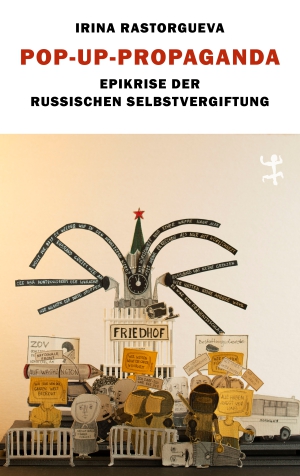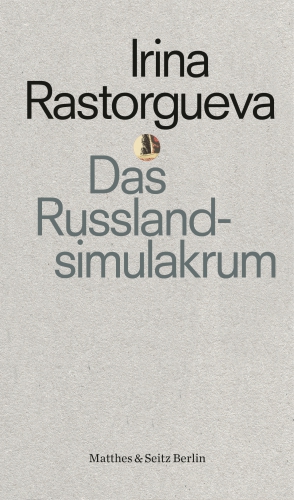While within Russia the ban on critical media and the synchronisation of nationalised broadcasters are producing an almost cartoonish narrative about traditional values and the necessity of ‘special military operations’, carefully planned propaganda campaigns in the rest of the world are working to destabilise democratic societies. A planned madness is sweeping the country. It manifests itself in the inflationary use of euphemisms and hate speech, as denunciation and in a punitive regime that has been thought through to the most subtle level. And it is a madness with a history. For the violence that has a relentless grip on Russian society is a continuation of the paranoid search for enemies, the nightly arrests, searches and torture as well as the gulags from the Soviet regime – in a garish, new guise and fused with the gangsterism of the 1990s.
In her unique tone, which is as precise as it is ironic, Irina Rastorgueva shows the effects of Russian self-poisoning in a montage of newspaper clippings and independent reports, from her own experience as well as from the analyses of authors critical of the Kremlin and loyal to Russia.
Non-fiction
Sample translation
English sample available
Irina Rastorgueva, born in Yuzhno-Sakhalinsk in 1983, studied philology at Sakhalin State University and worked as a cultural journalist for several Russian magazines and radio stations. From 2006 to 2015, she was a lecturer in journalism at Sakhalin State University. She is the author of numerous academic articles on the theory and history of literature and journalism in the 20th century. In 2011 she founded the cultural magazine ProSakhalin. She has been working as an author and graphic designer in Berlin since 2017. She writes for the FAZ, NZZ and Osteuropa magazine.








